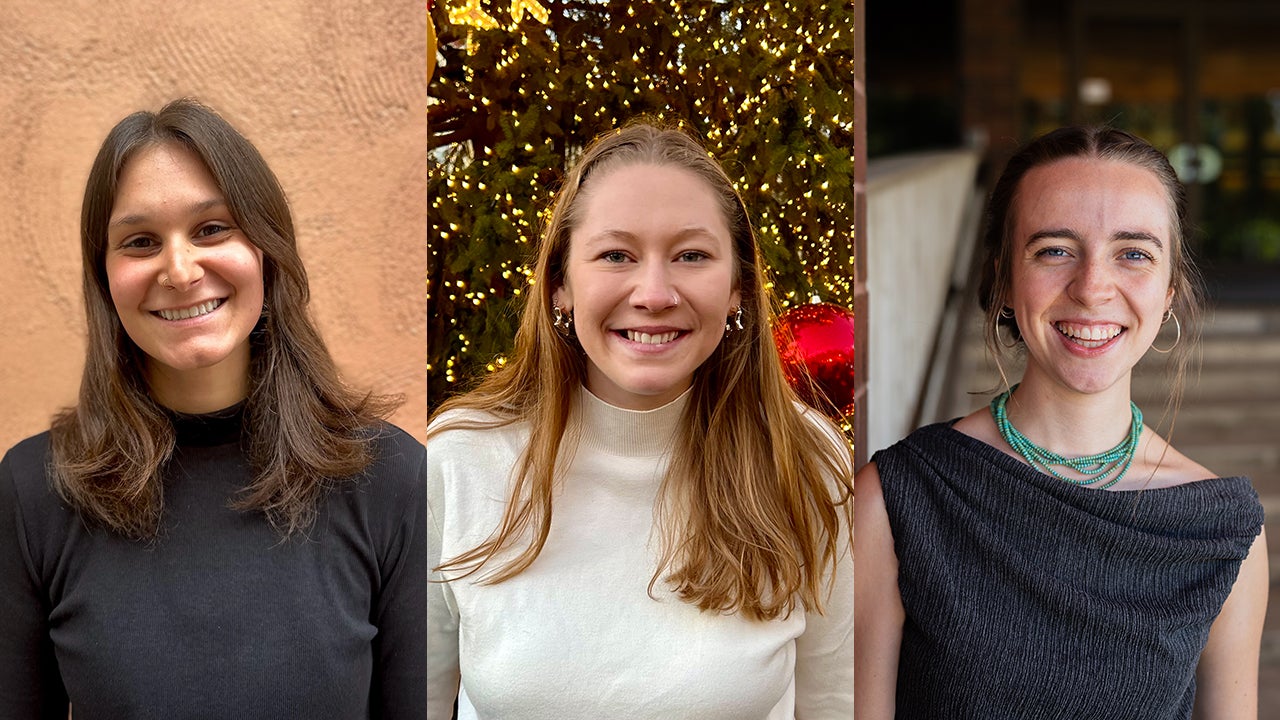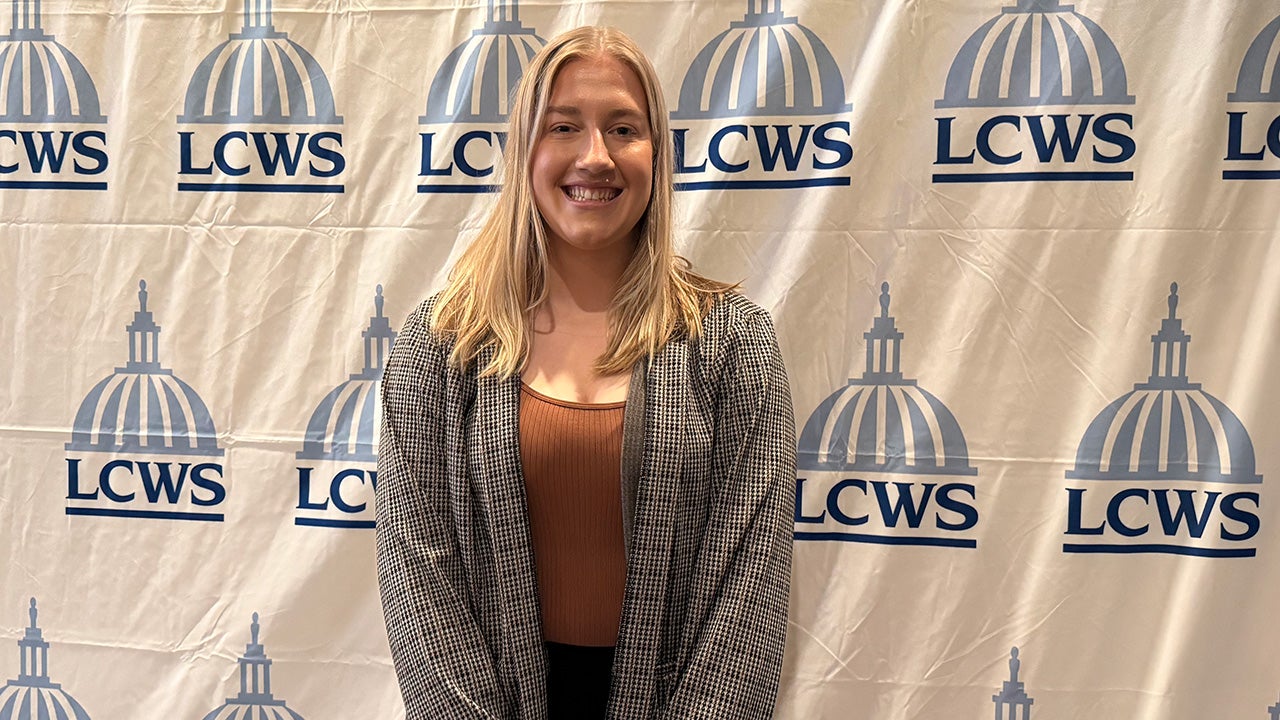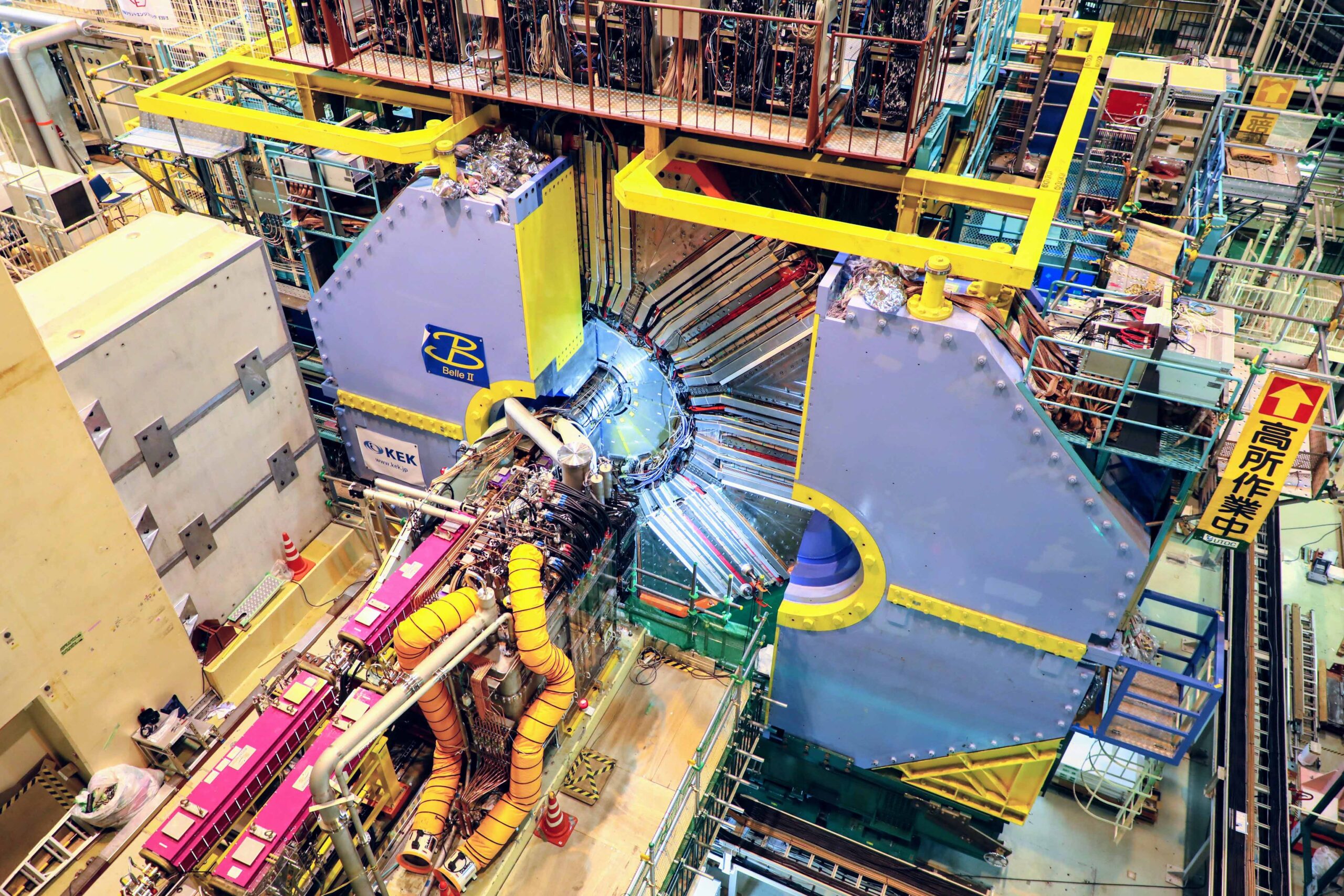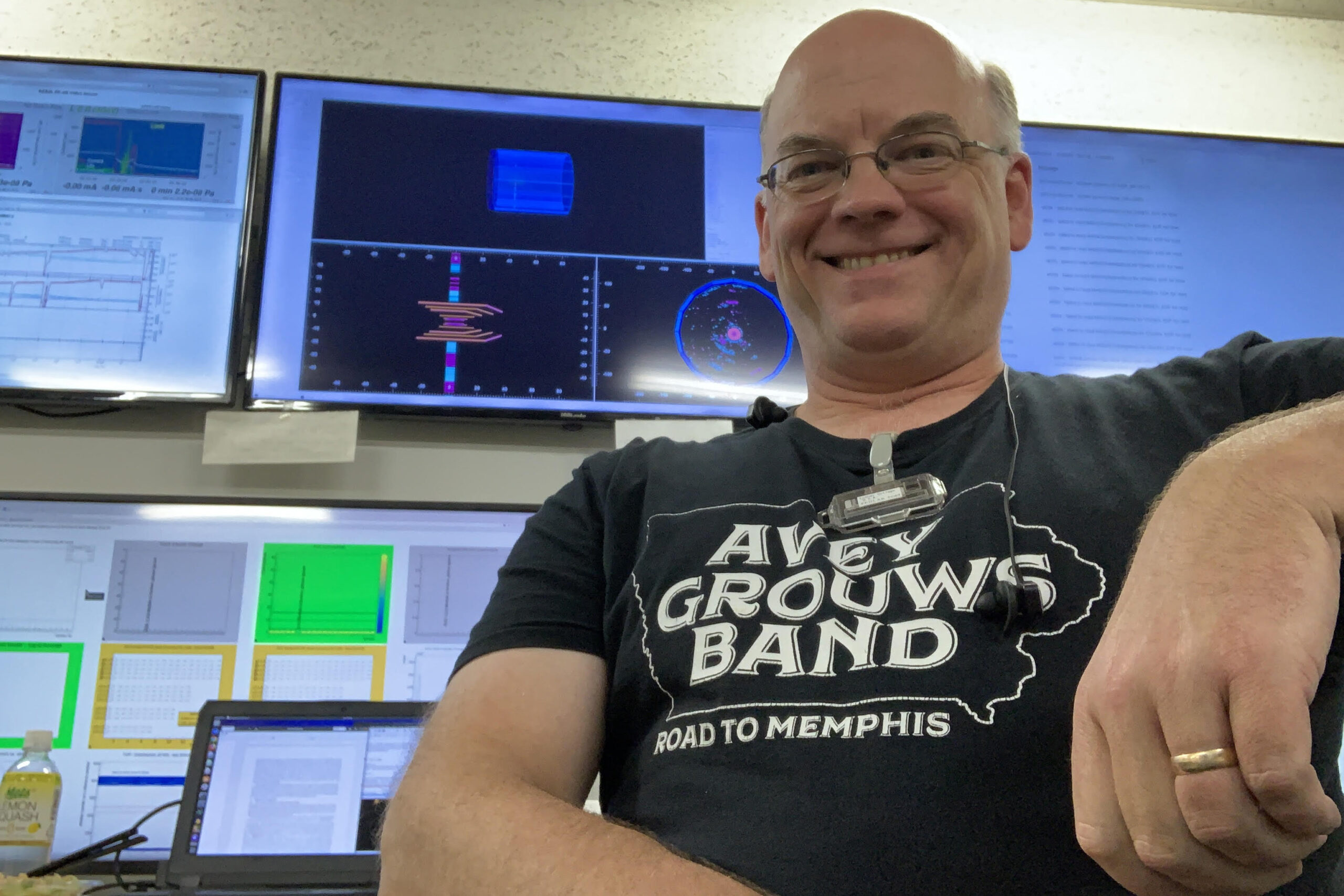Understanding the building blocks of the universe
Luther College Physics Professor Todd Pedlar has received his seventh consecutive National Science Foundation (NSF) research grant. Since 2006, NSF grants have allowed Pedlar and Luther students to participate in international collaborations that conduct research in elementary particle physics, a field of fundamental physics research that seeks to understand the basic building blocks of our universe.
Pedlar’s new three-year grant, in the amount of $185,000, supports Luther’s participation in the international collaborations Belle and Belle II. These collaborations operate experiments at KEK, Japan’s High Energy Research Organization, in Tsukuba, Japan, and include more than 1,000 members from 128 institutions in 28 countries. Luther is one of 16 U.S. institutions collaborating on these experiments, and is the only liberal arts college doing so.
The grant to Luther College will support Pedlar and his students, computing infrastructure, and travel to the Belle II Experiment site in Japan and to conferences where the group presents their results.
The experiment’s aim is no less than achieving a better understanding of the fundamental building blocks of our universe. These discoveries can lead not only to greater understanding of the physical world but also to the development of significant technologies that can yield improvements in medicine and other fields, such as biomedical engineering.
“Much of the technology that enables us to detect cancers and treat them were developed from tools and techniques originally designed for conducting fundamental research,” said Pedlar. “This would include X-ray machines, MRI and other diagnostic tools that allow us to look into the brain and find tumors or anomalies that need treatment. Many of these important tools and techniques have a deep connection to the study of fundamental physics.”
The Belle II Experiment, KEK, Tsukuba, Japan
An Exciting Time for Fundamental Physics
“I am grateful that the National Science Foundation has once again recognized Professor Pedlar’s outstanding work as a scholar and research mentor,” said Luther College Provost Brad Chamberlain. “The research experiences that Professor Pedlar provides to students at Luther through this international collaboration are both exceptional and transformational. The experiences inspire students’ curiosity as they explore together the fundamental operations of the universe, give them the confidence to take on challenging projects, and open doors for future professional opportunities. This project, with its continuous record of funding success and its demonstrated impact on students, is a notable example of the strength of Luther’s academic programs and the excellent learning environment that we provide to our students.”
Pedlar says that this is a particularly exciting time for him and his colleagues in the Belle II Collaboration. “In spring 2024, the Belle II Experiment began data-taking again, after a series of upgrades to the detector system and accelerator system,” Pedlar said. “In the present data-taking period, which is expected to continue until 2028, when we’ll shut down again for another upgrade, a total data sample of several times the original Belle II sample will be collected.
“Because of the enormous increase in the amount of data taken, my students and I will have the ability to study processes that are much more unusual and, as such, have greater opportunities to reveal new aspects of the interactions of elementary particles and previously unknown structures formed by them,” he added.
Working with Dr. Pedlar introduced me to the idea of science as a dynamic process of discovery, rather than a static collection of facts. His mentorship helped me cultivate critical thinking, allowing me to embrace the uncertainties of the natural world while building on existing knowledge to ask new questions and develop the tools needed to answer them.
Alain Nishimwe ’22Doctoral student, biomedical engineering, University of Minnesota
Alumni Achievements
Pedlar notes that his student researchers have gone on to significant educational and career achievements, fostered by their Luther experiences with the Belle II international research collaboration.
Over the past 18 years, many of his students have gone on to doctoral or master’s programs in physics, mathematics and engineering; seven have thus far earned doctorates, and are now engaged in postdoctoral research or are pursuing careers as research scientists or as university faculty.
Zachary Stottler, a 2015 Luther graduate, is one example. Stottler earned a Ph.D. in physics from Virginia Tech in 2022 and is presently enrolled in a medical physics residency working in radiation oncology at the Mayo Clinic. After collaborating for more than a decade, Pedlar and Stottler will soon publish a Belle II-related paper about their joint research.
“It is rare to find one of the world’s leading experts on heavy quarkonium in rural Iowa—let alone a professor dedicated to investing significant time and energy in mentoring undergraduates, shaping them into the next generation of physicists,” said Stottler.
“One of the primary reasons I chose Luther College was the opportunity to work in the Pedlar lab,” Stottler continued. “It provided access for a rural Minnesota kid to the cutting-edge research being conducted at the national labs of KEK in Japan and PNNL in Washington—an extraordinary opportunity for an undergraduate at a liberal arts college.”
Alain Nishimwe, a 2022 Luther graduate, is now in a Ph.D. program in biomedical engineering at the University of Minnesota. He, too, was inspired by his involvement in Pedlar’s research.
“Working with Dr. Pedlar introduced me to the idea of science as a dynamic process of discovery, rather than a static collection of facts, as I had been taught,” Nishimwe said. “His mentorship helped me cultivate critical thinking, allowing me to embrace the uncertainties of the natural world while building on existing knowledge to ask new questions and develop the tools needed to answer them. This mindset has shaped not only my academic and professional path but also enriched my personal life.”
Project History
In 2021, Professor Todd Pedlar worked on his NSF-funded research with then-Luther students Alain Nishimwe and Sam Wilson. Nishimwe is now in a Ph.D. program in biomedical engineering at the University of Minnesota; Wilson continued his education in a master’s of mechanical engineering program at the University of Illinois at Urbana-Champaign.
Related Posts

Operating in over 140 countries worldwide, Fulbright is the largest and most esteemed exchange program sponsored by the U.S. government.

The last time a Luther student received the award was 2021.
Contact Information
Michelle Volkmann
Media Relations Specialist
Phone: 563-387-1417

